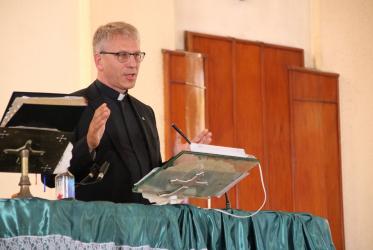Displaying 1 - 20 of 31
06 September 2022
COVID-19 in conflict zones: “a crisis within another crisis”
27 November 2020
The cry of the Papuans in Indonesia
14 November 2019
“Love will find a way”
23 August 2018
An advocate for family values, called by God
26 March 2018
In Fiji, “time to go beyond the reef”
14 August 2017
In Lebanon, refugees face hardship - but find hope
16 March 2017
"I hit the ground running": Katalina Tahaafe-Williams
16 February 2016
Fleeing from – rather than to – a place
10 February 2016












